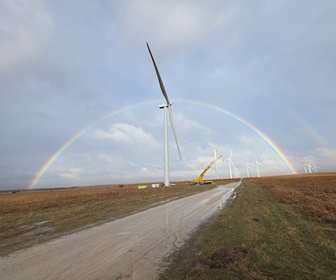Global investment in the low-carbon energy transition surged 17% in 2023, reaching $1.77 trillion, according to Energy Transition Investment Trends 2024, a report published today by research provider BloombergNEF (BNEF). This number is a new record level of annual investment.
The report finds that electrified transport is now the largest sector for spending in the energy transition, growing 36% in 2023 to $634 billion. This figure includes spending on electric cars, buses, two- and three-wheelers and commercial vehicles, as well as associated infrastructure.
The renewable energy sector, which saw an 8% increase to $623 billion. This figure reflects investment to construct renewable energy production facilities, such as wind, solar and geothermal power plants, and biofuels production plants – among other things. Power grid investment was the third-largest contributor at $310 billion. Grids are a critical enabler for the energy transition, and investment in them will need to rise in the coming years.
There was also strong growth in emerging areas such as hydrogen (with investment tripling year on year), carbon capture and storage (near-doubling) and energy storage (up 76%).
The largest country for investment by far was China, with $676 billion invested in 2023 – equivalent to 38% of the global total. Although China remains dominant, its lead has been reduced. Taken together, the European Union, US and UK outpaced China with $718 billion of investment. Investment in the US jumped 22% year-on-year, to $303 billion, as the effects of the Inflation Reduction Act started to be felt.
According to the report, energy transition investment would need to average $4.8 trillion per year from 2024 to 2030 to align with BNEF’s Net Zero Scenario, a Paris Agreement-aligned trajectory from the 2022 New Energy Outlook. This is nearly three times the total investment observed in 2023.
In addition, BNEF’s report finds that investment in the global clean energy supply chain, including equipment factories and battery metals production for energy technologies, hit a new record at $135 billion in 2023 (up from just $46 billion in 2020).
BNEF projects this figure to rise to $259 billion by 2025, based on currently announced investment plans. In the next two years, only the wind sector needs to increase its supply chain investment to get on track for a net-zero trajectory; the other areas are investing at a sufficient pace.









